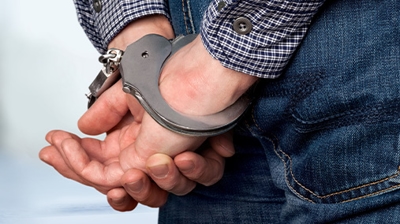
DUI Checkpoints in Colorado
Talk with a Denver DUI Attorney You Can Trust
DUI sobriety checkpoints or roadblocks are a common tool used by Colorado law enforcement to detect and arrest drunk drivers. Standard field sobriety tests are a classic example of the DUI Exception to the U.S. Constitution. Drivers are funneled into strategically placed checkpoints and forced to stop their vehicle while they are confronted by a police officer.
The officer will stick their head inside your vehicle attempting to detect the odor of alcohol or the presence of drugs and will also ask you if you have consumed any alcohol or drugs tonight. The officer will attempt to detect the odor of alcohol on your breath or the smell of burnt marijuana coming from your person or inside the vehicle, slurred speech or blood-shot, watery, glassy eyes. The officer will also try to detect if you are unusually nervous or scared as this may lead them to believe you have something to hide.
Upon admission of drinking, smoking marijuana, or consuming any drugs, including prescription drugs, or any observed indicia of impairment, the officer will request you pull over to a designated area and exit your vehicle. A different officer will likely ask you to perform voluntary roadside maneuvers and will subsequently place you under arrest and require you to submit to a chemical test to determine your blood alcohol content.
Are DUI Checkpoints Legal?
In 1990, the United States Supreme Court reversed a State Supreme Court decision that declared DUI sobriety checkpoints unconstitutional. In Michigan Department of State Police v. Sitz, 496 U.S. 444 (1990), the Court held that the checkpoint operation in question did not violate the Fourth Amendment's prohibition against unreasonable searches and seizures.
The Court's 6-3 decision authored by Chief Justice Rehnquist was not an unexpected result. The ruling recognized that roadblocks do constitute a "seizure" within the bounds of the Fourth Amendment, but the Chief Justice reasoned that the intrusion on individual liberties must be weighed against the need and effectiveness of the roadblock. In the end, the interests in reducing alcohol-related fatalities outweighed the intrusion on human privacy rights and sobriety checkpoints were deemed constitutionally acceptable.
Dissenting justices emphasized that the Constitution doesn't provide exceptions. "That stopping every car might make it easier to prevent drunken driving ...is an insufficient justification for abandoning the requirement of individualized suspicion," dissenting Justice Brennan insisted.
Chief Justice Rehnquist had argued that violating individual constitutional rights was justified because sobriety roadblocks were effective and necessary. But dissenting Justice Stevens pointed out that "the findings of the trial court based on an extensive record and affirmed by the Michigan Court of Appeals, indicate that the net effect of sobriety checkpoints on traffic safety is infinitesimal and possibly negative." And even if roadblocks were effective, the fact that they work wouldn't justify violating individuals' constitutional rights, justices argued.
Can States Ban DUI Checkpoints?
While the U.S. Supreme Court has made the DUI exception to the Constitution, 11 states have found that sobriety checkpoints violate their own state constitutions or have outlawed them. In these states, individuals have more protections against unreasonable search and police sobriety roadblocks are prohibited. Unfortunately, Colorado is not one of them. People v. Rister, 803 P.2d 483 (Col. 1990), is the applicable case law which states that the Colorado Constitution should be interpreted as coextensive with the Federal Constitution with regard to checkpoints.
The Supreme Court also said, however, that procedural guidelines must be followed by the police in order to make the roadblock constitutional. For example, there must be a non-discriminate method of stopping the vehicles. See Delaware vs. Prouse, 440 U.S. 648 (1979). In other words, the police cannot just randomly pick a car here and there to stop. The police must treat all vehicles the same. They can do this by stopping every car, stopping every other car, or every third car, and so on. This procedure should be established by the police before the roadblock begins, and should be included in the administrative order authorizing the use of the DUI sobriety checkpoint.
The procedure that the police establish for stopping vehicles can be changed anytime during the checkpoint's operation, so long as all vehicles are treated uniformly under the revised procedure. See United States vs. Prichard, 645 F2d 854 (1981). If the police change the sequence for stopping vehicles - for example, they go from stopping every other vehicle to stopping every vehicle - they must document the reason for changing the procedure. Changes in the checkpoint procedure can happen when traffic is getting backed up, there is inclement weather, personnel changes, etc.
A well-trained and knowledgeable Denver DUI attorney will understand the constitutionality of checkpoints and how to defend cases arising from sobriety checkpoint arrests.

What Sets Us Apart From The Rest?
Orr Law Firm is here to help you get the results you need with a team you can trust.
-
Offer Free Consultations and Payment Plans
-
Proven Record of Dismissals, Reductions, and Acquittals
-
Highly-Qualified Defenders Who Know How to Fight for Results
-
Award-Winning Advocacy from Top Trial Lawyers in the Nation



